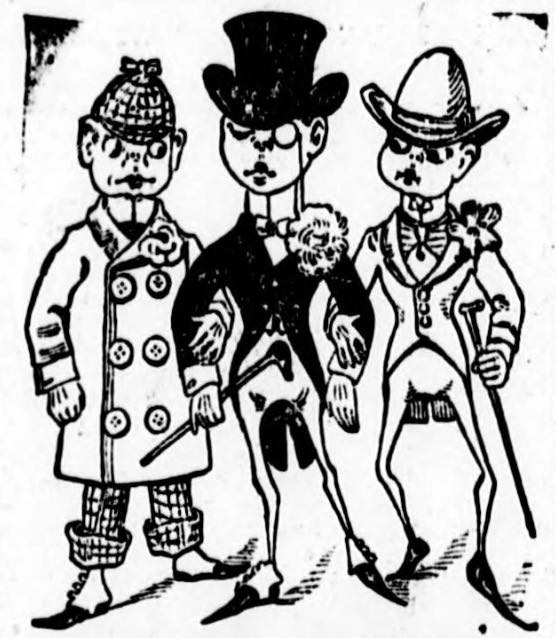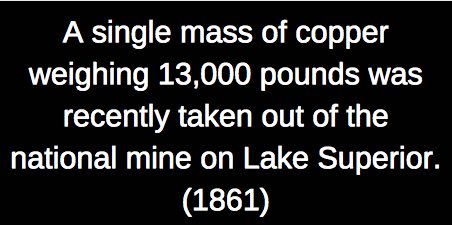
A cautionary tale of a young man who inherited a fortune and blew through it all in just a few short years.

How to Squander $2,000,000 And Die Poor
“Coal Oil Johnny”
Wealth Came From Oil Lands and Cash Left by an Aunt When He Was 21 — Was Broke at 25 and Until Death
By Marguerite Mooers Marshall
“Coal Oil Johnny” is dead. The most picturesque of “princely spenders,” whose real name was John W. Steele; who is said to have run through nearly two million dollars in about four years; who bought a hotel if he disliked the clerk and wanted to fire him; or a minstrel show, if he had made friends with the performers; or an engine and train, if he desired to travel; or a cab, if the cabbie said his wife yearned for a $3,000 diamond ring — ended his life, at seventy-seven, in one end of a little railroad station in Fort Creek, Neb., where he lived and worked and earned perhaps $50 a month.
There is a saying that the American transit from shirt sleeves to shirt sleeves is usually accomplished in three generations. About four years was time enough for “Coal Oil Johnny” to run this gamut. At twenty-one, in 1864, he came out of Oil Creek Valley an American Prince Fortunates, who thought that he possessed a bottomless purse. Early in 1868 he filed a voluntary petition in bankruptcy. Never since has he known wealth, or even moderate affluence.
But he had one great time as long as it lasted, and he made his name a synonym for “blowing one’s roll.”

He was born of poor parents near Sheakleyville, Mercer County, PA., in 1843, but at an early age went to live with his uncle and aunt, Mr. and Mrs. McClintock, who had a large farm on Oil Creek, Pa. His uncle died when the boy was twelve, his aunt just before he came of age. Oil had been discovered on the farm, and it was in trying to light the fire with oil that Mrs. McClintock met her death. It was through lighting the fires of senseless extravagance with the proceeds of the oil that Johnny Steele came to grief.
For at twenty-one this unsophisticated country youth, with a wife and a small baby, found that a sum estimated at $500,000 was tucked away in his aunt’s safe. The dear lady had put no trust in banks or in trust companies. Before we criticize “Coal Oil Johnny” too harshly, let us stop and think just how wisely we would have handled a cool half million in cash, with hundreds of thousands more in prospect, if such a sum had dropped into our laps at orphaned twenty-one, without a stroke of work on our part.
Naturally enough, “Coal Oil Johnny” hit it for the bright lights — which, for him, seemed to burn in staid Philadelphia. One wonders that the dear town should ever have deserved that adjective after Johnny hit it. He had with him a chum named Seth Slocum and the contents of the Widow McClintock’s safe. At the station he was met by W.H. Wickham of New York, who offered him $1,000,000 for the McClintock farm, with $30,000 in cash to bind the bargain. There seems to be no exact record as to just how much he did spend in his wild career, but according to one story, besides the half million or more with which he began, he received cash “in bundles” from the manager of his aunt’s oil farm. Also he borrowed huge sums on his prospects, and around two million seems to be a fair rough estimate of his expenditures.
He first invested largely in drinks and in clothes, according to contemporary accounts. He had a lordly way of walking into a saloon and buying drinks for every one who would swallow them — with as many encores as the audience desired. He is said to have ordered $8,000 worth of clothes from one tailor in one morning.
He moved from the small hotel in which he had first stopped to the conservative and aristocratic Continental. There he considered that the clerk in charge had not recognized sufficiently his importance. He asked the landlord to dismiss the clerk, and then tried to buy the hotel when the request was refused. He succeeded in leasing it for one day for $8,000. Out went the clerk, in went Johnny as landlord.
The doors were thrown open, and every guest in the house had his fill of wine and food at no charge. A placard was placed on the outside inviting everybody in the city to share the free hospitality. On that one day “Coal Oil Johnny” is supposed to have thrown away $100,000.
He was especially keen on minstrel shows. He bought up the Skiff and Gaylord show, that had fallen on evil days, and went on the road with the company. In Utica he gave the company a supper at a cost of $1,000. Then he bought an engine, sleeper and baggage car and went junketing in his own train. He tried to buy Chicago’s most aristocratic place of entertainment, at that time the Crosby Opera House, when the manager refused to open it to his show.
He wanted to take a cab in Philadelphia one rainy day, but the driver said it was engaged. Johnny tossed him a $500 bill and the cabby decided to forget his other customer. Another cabman told him his wife wanted a diamond ring.
“I’ll give you $3,000 for your cab,” said Johnny.
“You bet,” promptly replied the cabman.
“Drive me around the block,” ordered Johnny. When the trip was finished, he said, “Now, my boy, you can have your cab back and keep your $3,000 to get your wife a diamond ring.”
He spent money on others at least as freely as on himself, giving his friends — the more or less dubious characters who surrounded him, or any one with whom he picked a chance acquaintance — magnificent present of diamonds, silverware or jewelry. He took flyers of folly on Broadway, as well as on Broad Street, Philadelphia.
But the oil farm dwindled in production and Johnny’s lavish expenditures ate up his ready cash and his borrowings. In 1868 he filed a petition of bankruptcy in which he was shown to owe no less than $32,789 for cigars, liquors, jewelry, billiard tables, hats and hotel bills.
That was the end of Johnny as a man of wealth. He had earned $2 a day driving an oil wagon before his spending spree began, and apparently he never earned much more since. He worked on farms at various places and he and his family lived in poverty. Several years ago he admitted that, as station agent for the railway in the service of which he died, he was getting about $50 a month.
“But I’m not kicking,” he said, cheerfully. “I’m still lucky. And I’m healthy, too. And I’ve never regretted those days when I threw money around like sawdust. I had a good time, but if I’d kept the money I might be worrying about it now. As it is, I’m making a comfortable living and feeling fine. I’m buying beer instead of champagne. But what’s the difference?”
All good sports and resellers will be glad that “Coal Oil Johny” lived to spend his fools’ gold before the blight of Prohibition settled on America — and sorry that he never had the fun of buying and running seventeen automobiles. Of him and his imitators — there’s one born every minutes — it may be written: “It’s a great life, if you don’t weaken!”
Source: The Evening World newspaper. January 05, 1921. New York, N.Y.

